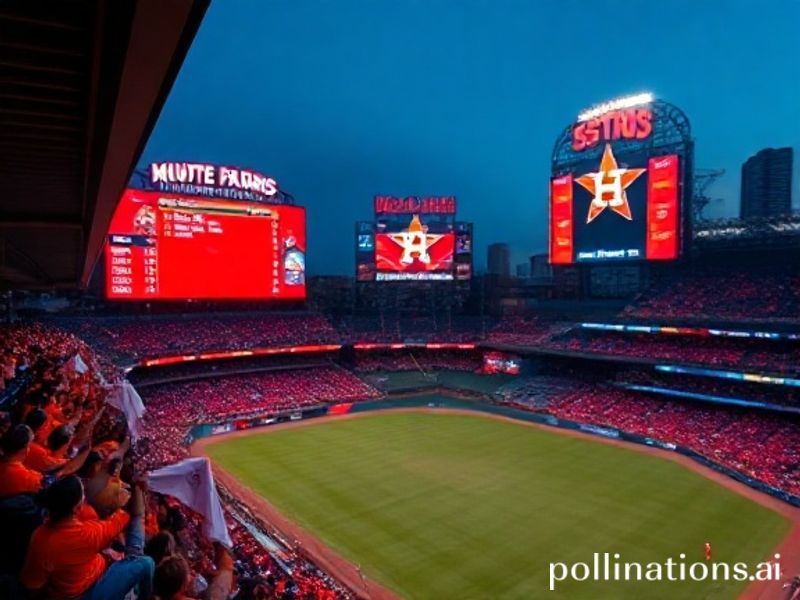Astros Standings: How Houston’s Baseball Team Became the World’s Favorite Metaphor for American Decline
**Houston, We Have a Problem: How the Astros Standings Became a Global Barometer for American Decline**
While the citizens of Houston obsess over whether their beloved Astros will clinch another playoff berth, the rest of the planet watches with the detached fascination of spectators at a slow-motion train wreck—except the train is carrying the entire American empire, and the conductor keeps adjusting his baseball cap instead of applying the brakes.
The Astros standings, you see, have become something of an international Rorschach test. To the casual observer, it’s merely a column of wins, losses, and games behind. But to those of us who’ve spent decades watching America’s pastime from the cheap seats of global politics, these numbers tell a far more entertaining story about a superpower negotiating its own decline with all the grace of a drunk tourist trying to explain baseball to a Parisian café owner.
Consider this: while the Astros battle for supremacy in the American League West, their very name—Astros—evokes the space-age optimism of a bygone era when Americans actually built things and shot them into orbit instead of shooting each other over parking spaces. The irony isn’t lost on international observers that a team named after the final frontier can’t seem to escape the gravitational pull of mediocrity, despite having access to resources that could fund a small nation’s space program.
From Beijing to Bangalore, analysts track the Astros standings with the same morbid curiosity that medieval peasants might have followed the genealogy of inbred royalty. Each loss registers as another data point in the great American unraveling—a nation so distracted by its sports industrial complex that it failed to notice when its infrastructure began resembling a developing country’s greatest hits compilation.
The global implications are staggering. When the Astros drop three straight to the Mariners, currency traders in London adjust their dollar positions. When they surge ahead in September, commodity prices in Singapore experience mysterious fluctuations. It’s as if the entire planet has become trapped in America’s bizarre fever dream where grown men in pajamas chasing a leather sphere somehow matters more than, say, preventing the oceans from becoming plastic soup.
European diplomats, trained in the ancient art of polite condescension, have begun incorporating Astros standings into their assessments of American reliability. “If they can’t manage a bullpen,” one German attaché confided over schnitzel, “how can we trust them with NATO?” Fair point, Klaus. Fair point.
The developing world watches with particular interest, having long ago learned that America’s imperial ambitions follow a predictable pattern: first comes the military base, then the McDonald’s, and finally—inevitably—the baseball diamond. The Astros standings serve as a harbinger of which nation will next experience the dubious honor of learning what an “infield fly rule” is while their natural resources are extracted with surgical precision.
Perhaps most poignantly, the standings reflect America’s peculiar talent for turning everything—including its own entertainment—into a cutthroat corporate enterprise where human joy gets commodified, data-fied, and sold back to the masses at a 400% markup. It’s capitalism’s greatest magic trick: convincing people that caring deeply about millionaires playing a children’s game constitutes meaningful civic participation.
As the season grinds toward its inevitably disappointing conclusion for someone (spoiler: it’s always the fans), the international community can only watch and wonder how a nation that once put humans on the moon now derives its greatest collective thrills from grown men spitting sunflower seeds while adjusting their cups.
The Astros standings, then, aren’t just numbers on a page. They’re America’s emotional EKG—spiking with hope, flatlining with despair, and occasionally flatlining so dramatically that even the most hardened international observer feels compelled to call for the defibrillator of perspective.
But hey, there’s always next season. There always is.







